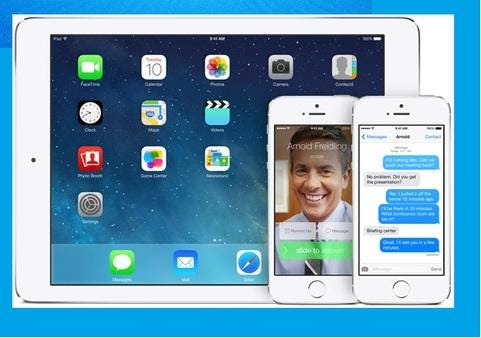Apple Settles FTC In-App Purchasing ComplaintApple Settles FTC In-App Purchasing Complaint
Agreement calls for $32.5 million in refunds for in-app purchases made without parents' OK.


10 Best iOS Apps Of 2013
10 Best iOS Apps Of 2013 (click image for larger view)
To settle a Federal Trade Commission complaint, Apple will refund consumers for in-app purchase charges made by children without the consent of parents, paying at least $32.5 million as a result.
The FTC complaint alleges that Apple violated the FTC Act by failing to provide adequate disclosure for purchases made on iOS devices. Prior to recent software changes, entering an Apple ID and password to install an app or make an in-app purchase opened a 15-minute window within which subsequent in-app transactions were possible without further authentication.
FTC chairwoman Edith Ramirez characterized Apple's concession as a win for consumers. "This settlement is a victory for consumers harmed by Apple's unfair billing, and a signal to the business community: Whether you're doing business in the mobile arena or the mall down the street, fundamental consumer protections apply," she said in a statement.
According to the FTC's legal filing, Apple has received tens of thousands of complaints from parents since March 2011 about unauthorized in-app purchases. In a few cases, these charges reached several hundred or even thousands of dollars.
[Do you use Google Web apps? Read 10 Great Google Apps Tips.]
While app developers profited from these transactions -- some through games cynically designed to encourage spending on virtual goods rather than to provide compelling game play -- Apple's oversight of the in-app payment process makes the company liable.
Not all of the FTC commissioners believe that should be the case. Commissioner Joshua Wright issued a dissenting statement, saying that those affected represent a miniscule group of consumers and that the harm done has been minor.
Wright also argues that the FTC should not second-guess Apple about how to design its products or require it to revise a proven business practice.
'[A]ny injury to consumers flowing from Apple's choice of disclosure and billing practices is outweighed considerably by the benefits to competition and to consumers that flow from the same practice," said Wright in his statement.
Apple CEO Tim Cook, in an email to employees published by re/code, argued that the FTC action was unfair because the company had previously settled a lawsuit over unauthorized in-app purchases.
The FTC intervention "smacked of double jeopardy," Cook wrote. "However, the consent decree the FTC proposed does not require us to do anything we weren't already going to do, so we decided to accept it rather than take on a long and distracting legal fight."
Cook said that last year Apple sent out 28 million emails to those who had made in-app purchases in games designed for children and received 37,000 claims. To exhaust its $32.5 million settlement fund, Apple would have to pay out about $878 per claim. Chances are the average claim is much lower. The unspent balance of the fund, if any, will be awarded to the FTC.
Thomas Claburn is editor-at-large for information. He has been writing about business and technology since 1996 for publications such as New Architect, PC Computing, information, Salon, Wired, and Ziff Davis Smart Business. He's the author of a science fiction novel, Reflecting Fires, and his mobile game Blocfall Free is available for iOS, Android, and Kindle Fire.
information Conference is an exclusive two-day event taking place at Interop where you will join fellow technology leaders and CIOs for a packed schedule with learning, information sharing, professional networking, and celebration. Come learn from each other and honor the nation's leading digital businesses at our information Elite 100 Awards Ceremony and Gala. You can find out more information and register here. In Las Vegas, March 31 to April 1, 2014.
About the Author
You May Also Like






